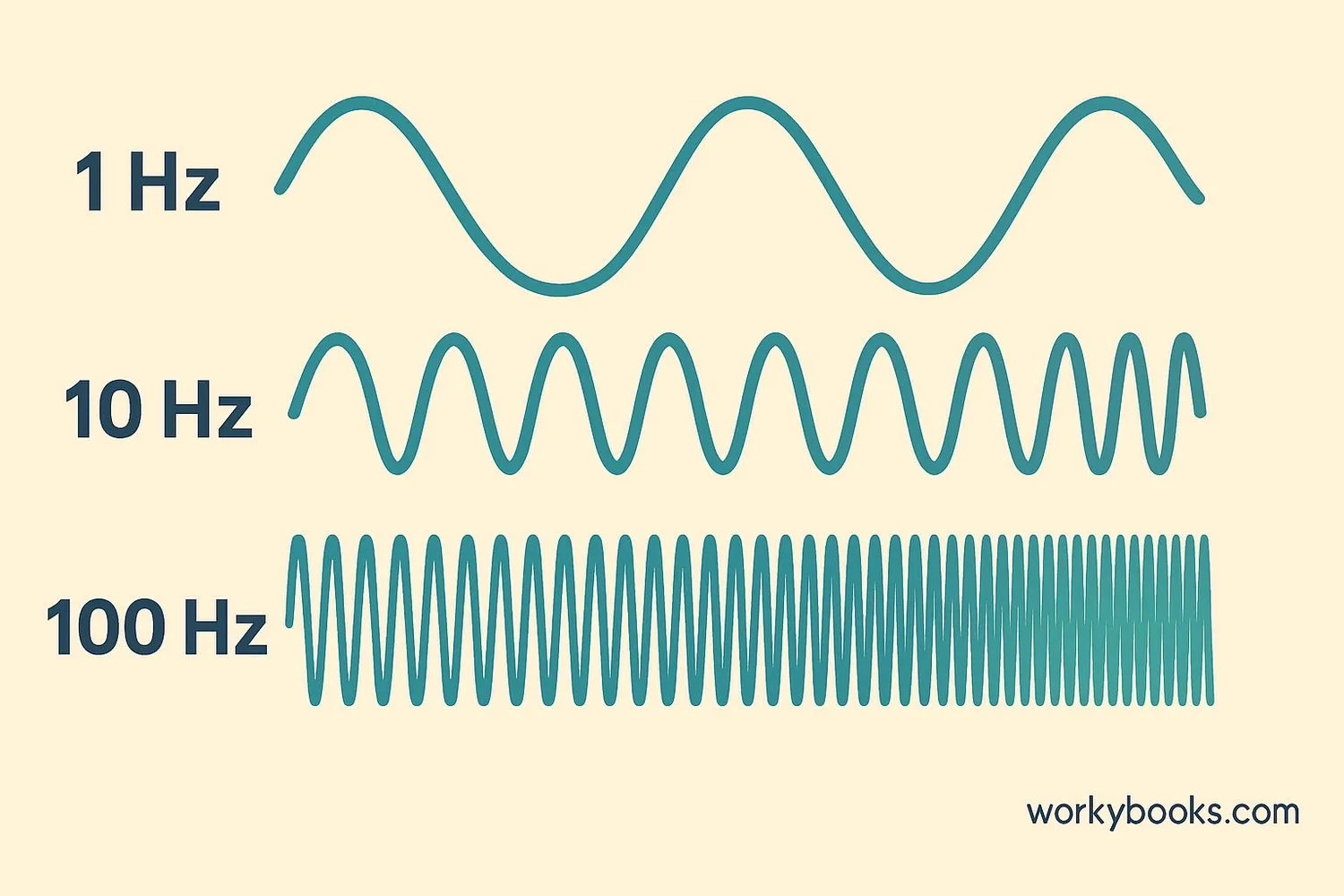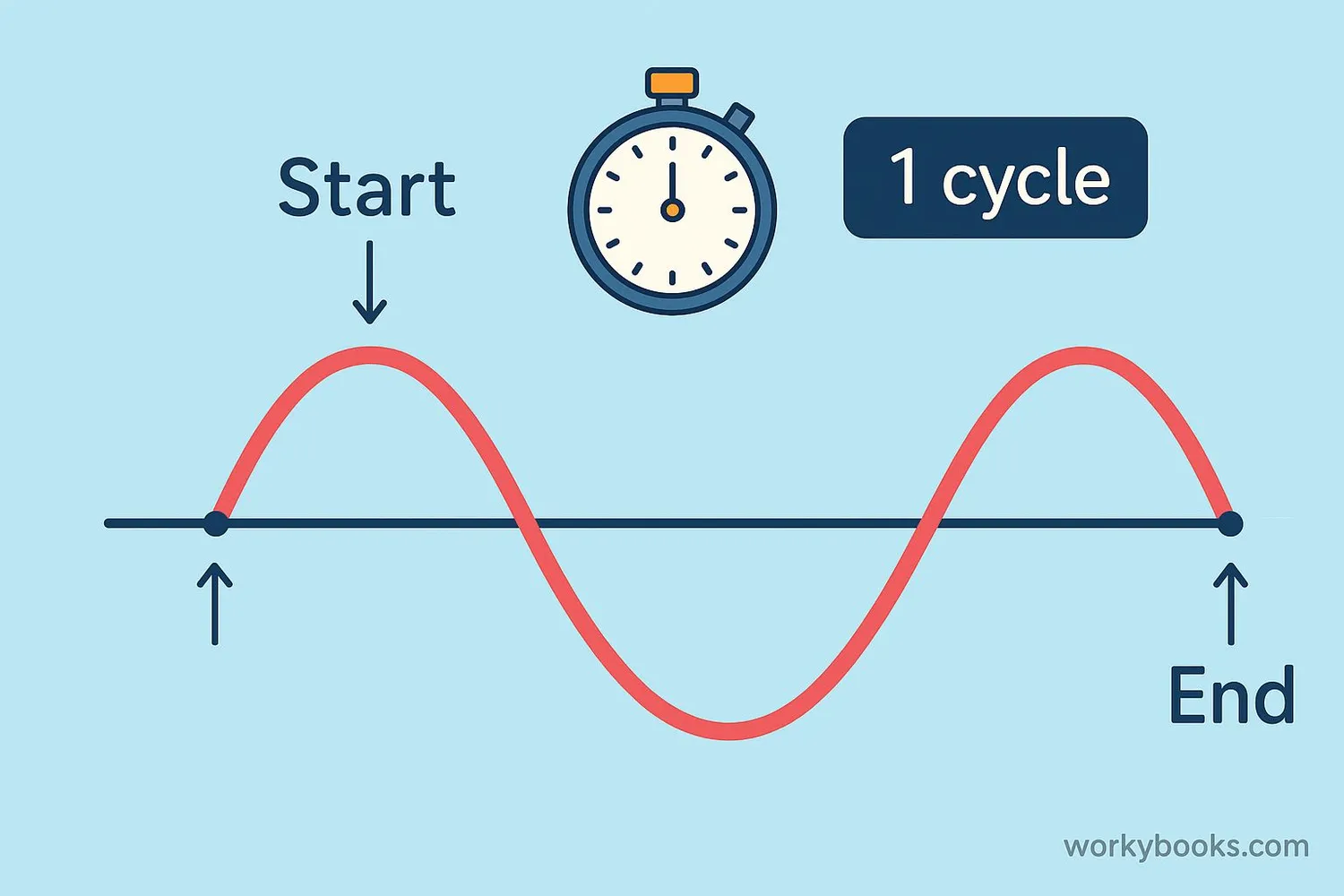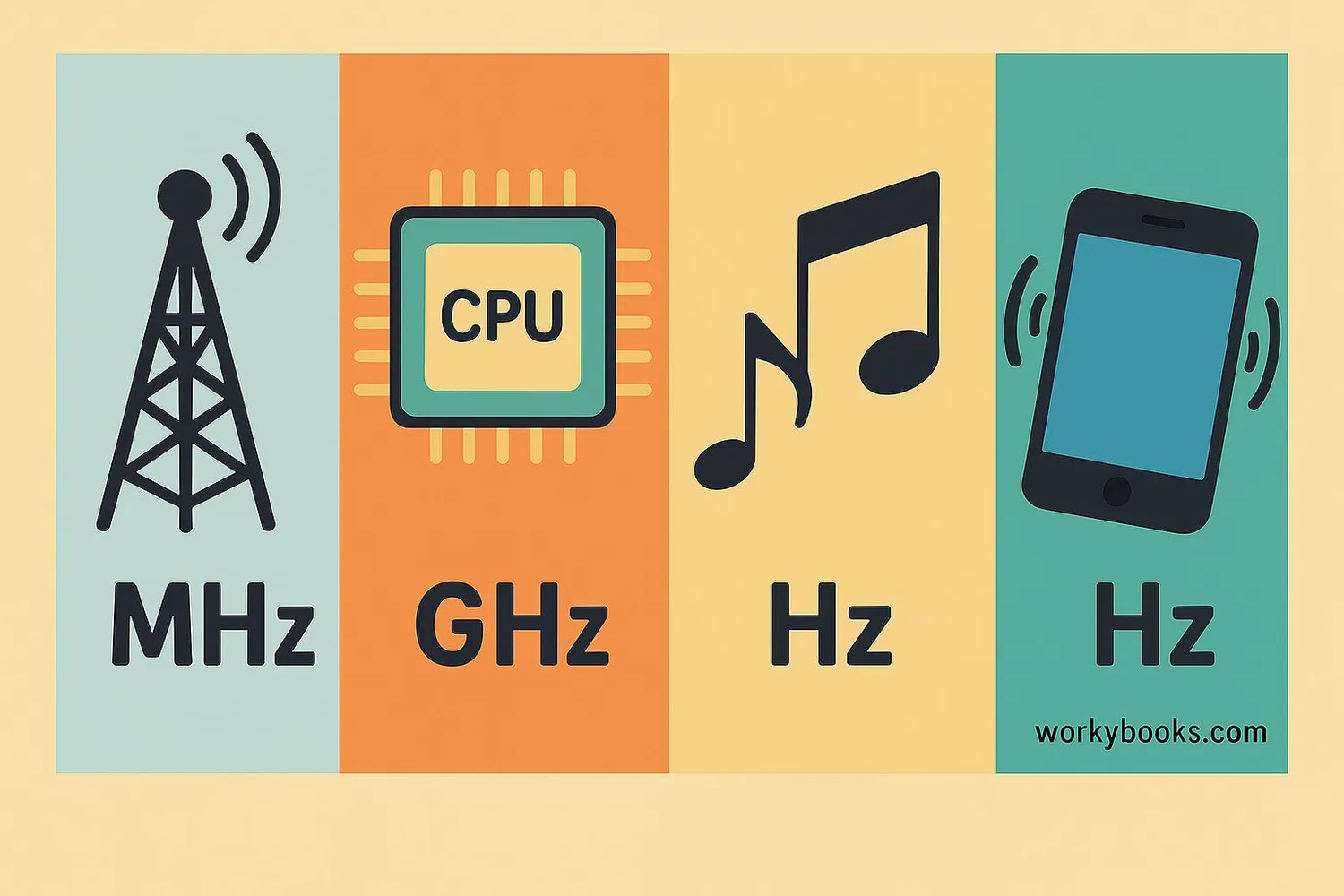Hertz Measurement - Definition, Examples, Quiz, FAQ, Trivia
Discover how we measure waves and vibrations in science and technology
What is Hertz?

Hertz (Hz) is the unit we use to measure frequency - how often something repeats in one second. Think of it like counting how many times something happens each second!
One hertz means one cycle per second. If you clap your hands once every second, that's 1 Hz. If you clap ten times per second, that's 10 Hz! The unit is named after Heinrich Hertz, a German scientist who made important discoveries about electromagnetic waves.
Frequency Fact!
Your heart beats about 1-2 times per second when you're resting. That means your heart has a frequency of about 1-2 Hz!
How We Measure Frequency

Measuring frequency is like being a wave detective! Here's how scientists measure frequency in hertz:
Identify a Cycle
Find one complete repetition in the wave or vibration
Set the Timer
Start counting when one second begins
Count Cycles
Count how many complete cycles happen in one second
Calculate Hertz
The number of cycles is the frequency in Hz
Different prefixes help us talk about very large or very small frequencies:
• Kilohertz (kHz) = 1,000 Hz
• Megahertz (MHz) = 1,000,000 Hz
• Gigahertz (GHz) = 1,000,000,000 Hz
Wavelength Connection!
Frequency and wavelength are related - higher frequency means shorter wavelengths. Radio waves can be kilometers long, while visible light waves are microscopic!
Hertz in Everyday Life

Hertz measurements are all around us! Here are some common examples:
Sound
Human hearing: 20 Hz to 20,000 Hz
Middle C on piano: 261.6 Hz
Radio
FM radio: 88-108 MHz
Wi-Fi: 2.4 GHz or 5 GHz
Computers
CPU speed: 2-5 GHz
This measures how many calculations per second!
Other important examples:
• Electrical power: 50 or 60 Hz (alternating current)
• Visible light: 400-790 THz (terahertz = trillion Hz!)
• Animal hearing: Bats use 20-200 kHz for echolocation
• Vibrating phones: Typically 100-200 Hz
Hertz Knowledge Quiz
Test what you've learned about hertz and frequency with this quiz!
Frequently Asked Questions
Common questions about hertz and frequency:
Frequency Fun Facts
Discover some amazing facts about hertz and frequency:
Animal Hearing
Elephants communicate using infrasound (frequencies below 20 Hz) that can travel for miles. This allows them to "talk" to other elephants up to 10 kilometers away!
Speed Evolution
The first computer processor (Intel 4004 in 1971) ran at 740 kHz. Today's processors run at 3-5 GHz - over 4,000 times faster! That's like comparing a bicycle to a rocket ship.
Earth's Frequency
The Earth itself has a natural frequency of about 7.83 Hz, known as the Schumann Resonance. This electromagnetic frequency is created by lightning strikes in the atmosphere.
Musical Precision
The standard tuning note for orchestras is A4 = 440 Hz. But some orchestras tune slightly higher (442 Hz or 443 Hz) for a brighter sound. Even a 1 Hz difference can be noticeable!





